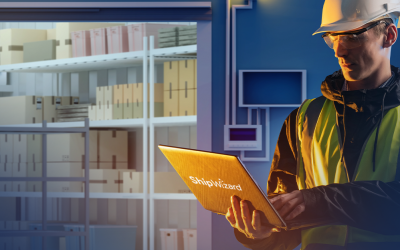In a retail environment where it seems like there are a lot more clicks than bricks these days, retailers, their employers and shoppers alike wonder what the future holds for old-fashioned brick-and-mortar shops. According to the National Retail Federation, just 21 percent of consumers made purchases in-store over Thanksgiving weekend in 2018. Is this another sign that physical retail is dying a slow death?
Brick and Mortar Finds New Ways to Stay Relevant
For most of their histories, traditional stores have been the end point of the supply chain. This worked out well for them. Customers could pop in, pick up the toaster, vacuum cleaner or television of their wildest dreams and then drive it home the same day. Easy as pie. Except that retailers had the tricky job of having to predict what customers were going to want tomorrow when it was still last week.
This challenge could lead to overstocks or returns when the in-store selection proved inadequate. And once the Internet became the world’s biggest shopping mall, all bets were off. Experts in every sector said that retail was over and done with. And for a while, it definitely looked that way, especially in low margin sectors like consumer electronics. But then retailers got brave and started experimenting with the customers they still had.
By providing apps to help navigate the store, track loyalty programs and display a list of other nearby stores that have an out of stock item available for purchase, retailers took their first big step toward remaining useful.
Retail’s Core Benefit: Experiences
Unlike Internet retailers, which are not really able to demonstrate their products in real life, a brick-and-mortar retailer has lots of products to show off. This is where they shine, it just look them a while to figure out that their survival depended on being the best place to try out the newest laptop. This year’s Thanksgiving weekend may have favored strictly online shopping to strictly offline shopping, but it was dominated by multichannel purchases, which claimed 54 percent of the shoppers surveyed by the NRF.
Did the Retail Grinch’s Heart Grow Three Sizes that Day?
By taking the convenience and easy comparison shopping of online stores and marrying it with the showplace concept in every kind of facility possible, from pop-ups to well-known retail operations, something new happened. It didn’t happen overnight, it wasn’t magic, it may have even just been the natural evolution of retail. Rather than leading with pushy, overworked salespeople, retailers hired people to act more like brand ambassadors. After all, everyone knows you can look up reviews for anything online in about two seconds using a smartphone, so there’s no point in puffing the features of a particular product. What these retailers did instead was to offer help finding the perfect gift, even if they did manage to sneak in an upsell here and there. But is it really an unwanted upsell if you go to a store to buy a smart hub and end up leaving with that plus devices to use with it?
Brick and mortar is still trying to find a good fit in the retail landscape, but the more these stores become giant showrooms with experts who can help you buy the ideal among the bigger ticket items, the better it will be for them and their supply chain partners.









